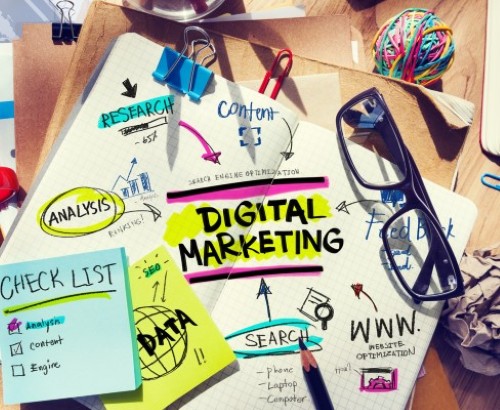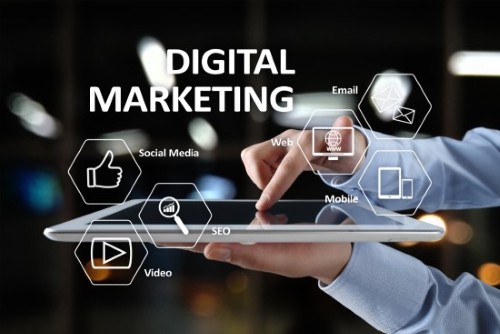A digital marketing agency is a professional firm that specializes in all marketing and advertising through digital channels. They use a range of tactics to increase client engagement, discoverability, and sales.

A digital marketing agency can do everything from content creation and social media management to search engine optimization, email campaigns, and PPC advertising. They also track and report on campaign progress.
Content Marketing
Content marketing is a popular digital marketing strategy that focuses on offering value to potential customers. It enables brands to establish themselves as a trusted source of information, build trust and brand authority, and offer answers to common industry or product questions.
Traditionally, content marketing has used text-based articles or visual materials to promote products and services. It also includes social media posts, videos, podcasts, and other interactive online media.
A successful content marketing strategy should be designed to cater to your target audience and their needs. This can be achieved by mapping content to their journey from discovery to purchase.
Social Media Marketing
When it comes to social media marketing, a digitální agentura Praha can help businesses reach their marketing goals. They are able to boost brand awareness, increase business reach and drive footfall through a variety of social media strategies.
They can also help businesses increase sales through e-commerce campaigns, improve the quality of their leads and refine customer profiles. They are also familiar with a wide range of social media channels and can advise on the best platforms to use for each campaign.
Social media agencies also know how to handle large budgets and are skilled at handling invoicing, card changes and other financial needs. It can save a business time and money to outsource this part of the marketing process and rely on experts to handle it for them.
Search Engine Optimization (SEO)
Search Engine Optimization (SEO) is the process of improving a website’s visibility and ranking on search engines. It’s a long-term strategy that requires daily action and constant activity, but it can result in higher organic traffic.
To get better search results, SEOs focus on optimizing a site’s technical configuration and content relevance, including keywords in titles, meta descriptions, and headlines. They also focus on improving the popularity of a page through link building and other means.
In addition to promoting content, SEO also involves creating a user-friendly and mobile-friendly website. These efforts can help your business stand out among competitors and increase the number of conversions.
Pay-Per-Click (PPC) Marketing
PPC stands for pay-per-click, and it is a form of online marketing that allows advertisers to bid on specific keywords and then place their ads in the top search engine results pages (SERPs).
A PPC ad may contain multiple versions with different headlines, descriptions and images. For best results, advertisers must create ad groups that house related keywords and landing pages.

Google Ads is one of the most popular PPC marketing tools and can help you specify your goals, create campaigns and set an ad budget. It also provides access to marketing data that can inform your SEO and content strategy.
PPC can be a great way to supplement SEO efforts or drive immediate traffic to a website while SEO is still underway. However, success won’t happen overnight. It typically takes between 2 and 4 months before you can see real-time results from your PPC campaigns.
Integrated Marketing
Integrated marketing involves creating a single brand message that reflects your company’s identity across different channels of communication. It’s a way of ensuring that customers can have a seamless experience when they engage with your company.
Creating consistent messaging can build brand loyalty, which is critical to long-term success. It can also help to increase sales, especially when the messages are tied together in a consistent manner.
Summary:
However, many marketers face challenges when it comes to integrated marketing. They may run into pushback from management teams that are resistant to sharing budget resources or messaging authority with other departments.


